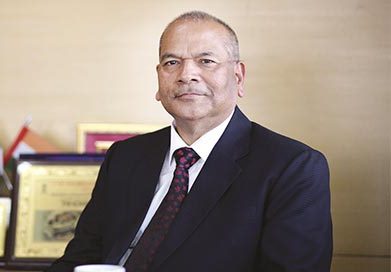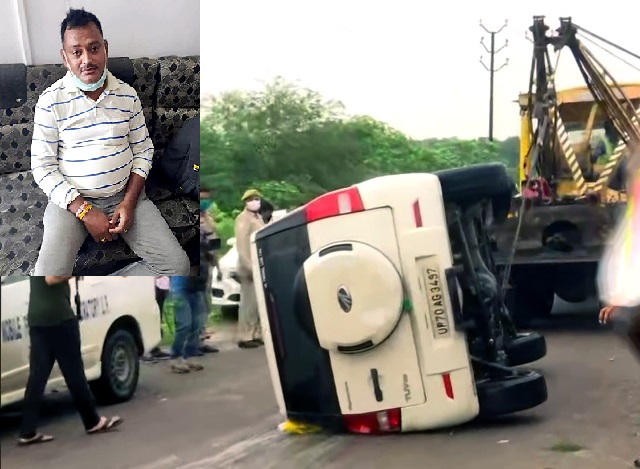Within hours after the news broke that the dreaded Uttar Pradesh gangster Vikas Dubey was killed in a “police encounter” early on July 10, the media, social media and messaging apps went abuzz. While there were stray voices of reason and rights, one particular message on WhatsApp dominated the popular sentiment thus: ‘Even a ten-year old knows this is a fake encounter. But people in UP couldn’t care less as long as the state is minus one more dreaded gangster.’
It was a redux of the Telangana Police encounter, eight months ago, where alleged rapists of a veterinary doctor were killed. Even though prima facie the encounter was seen as staged, the policemen involved were praised and lauded by the public as heroes.
Thus, the malaise runs deeper than what civil society believes – that extrajudicial killings are the mixed handiwork of police highhandedness, a delayed justice system and people’s disregard for legal loopholes. Fake encounters such as these are symptomatic of the erosion of our judicial, policing, and societal systems. This is a scary prospect because it hurtles society towards anarchy where law is disregarded and people’s rights, including that of alleged criminals, are denied and over-ridden by primitive instincts.
The problem in different states, or regions, emanates from different compulsions; at times there could be public pressure, or plain police highhandedness, or the long-winding legal processes that frustrate the police preparedness. In this column, however, we shall limit our argument to the latest “fake encounter” and Uttar Pradesh criminal justice system.
So, what went wrong in the case of Vikas Dubey?
Clearly, Dubey failed to graduate from crime to community. Most of the criminals who were bumped off by Uttar Pradesh police, from Sri Prakash Shukla (the dreaded contract killer and tender mafia in the 1990s) to Vikas Dubey, had this shortcoming. In contrast are the likes of Mukhtar Ansari, DP Yadav and Raja Bhaiyaa (real name Rahugraj Pratap Singh), who in spite of proven criminal records, entered politics and survived, even flourished.
Their transition from crime to community is not a difficult task in Uttar Pradesh, where power and gun culture is so glorified that it is easy for a gangster to project himself as the messiah or pride of one’s community, caste, region or religion. Flashing a bunch of licenced guns at a wedding procession is considered more prestigious here than owning ten times of farm land in acres.
Add to this the poor policing. There has been numerous recruitment scams in Uttar Pradesh Police. Each time a new political regime takes over Lucknow, new investigations are ordered and a large number of police appointments are cancelled, followed by cases and counter-cases in courts. A majority of rank policemen (the constabulary) is unable to even write down an FIR (first information report) in plain language. An FIR forms the basis of a criminal investigation but in UP, there is a Hindi adage that translates loosely to this: ‘Why do you need to file (an FIR) when you can FIRE a rifle?’
Then, there is the power structure of regional, caste or communal dominance in various belts: in eastern UP, for example, a Jat leader gains political prominence only after he (rarely she) is able to terrify Muslims and Jatavs (two separate vote-banks) or vice versa; in the adjoining belt, a Yadav leader’s rise to power is proportional to how many police personnel or officers he has publicly slapped or humiliated; further west, the script is similar – a small-time criminal takes up arms against either the “oppressive police” or the dominant upper caste lord, and then sets oneself into a Bahubali cast who brooks no opposition. Railways, public works contracts, and extortion money fund these goons. After a point, they either join politics or get killed after losing relevance for their political masters.
Sri Prakash Shukla and Vikas Dubey felt political power was beneath them. Raja Bhaiyya, Mukhtar Ansari and DP Yadav joined politics, even jumped ships to stay afloat and are therefore are alive and operational today. It is not that the latter three had any less criminal cases to their ledger.
Raja Bhaiyya was booked under terrorist act, charged with the murder of a DSP, Zia Ul Haq, and was rumoured to have even thrown his rivals to a pond full of crocodiles in his native village. Yet, he was rewarded by the Samajwadi Party with a cabinet portfolio of Jail Ministry (there were 46 criminal cases against him at that time).
Mukhtar Ansari, a dreaded don of eastern Uttar Pradesh who was accused of running numerous extortion and contract rackets, secured political protection with a Bahujan Samaj Party ticket and by winning Mau legislative Assembly seat for record five times. Even when he was expelled from the party after being charged with killing BJP legislator Krishnanand Rai, he formed his own party Quami Ekta Dal which was later merged with BSP as “ghar- wapasi”.
The case of DP Yadav is no less illustrative. Starting as a bootlegger to having monopolized liquor mafia in Ghaziabad (in close proximity to the National Capital) and adjoining areas of western Uttar Pradesh, Yadav joined politics after he was named in a hooch tragedy that took 350 lives in early 1990s. He joined Samajwadi Party, Janata Dal, later Janata Dal (Secular), even Bharatiya Janata Party for a brief spell, and finally Bahujan Samaj Party. He has represented both state assembly and Lok Sabha, and has survived any “encounter”.
What do these stories tell us? That crime and politics make a heady cocktail in Uttar Pradesh. Add police to this and you have an unholy, all-superior trinity which can bypass even the court of law. A state’s job is to establish the rule of law, not by unleashing extra-judicial delivery of justice but with better education, a competent constabulary, transparent platform for public grievance, better administrative presence and a responsive system. But in UP, where the state head himself carries a long-running criminal history — many of which he got dismissed after being sworn in as chief minister — this would be asking for too much.
As of now, the Uttar Pradesh police has publicly displayed its unabashed disrespect for the law. And considering Chief Minister Adityanath Yogi’s “free hand” to the police in dealing with criminals, it is likely to set off another round of extra-judicial killings. The aim apparently is to replace ‘Goonda Raj’ with ‘Police Raj’, mirror images of one another. And unless there is a public movement by the civil society, human rights groups, conscientious citizens and the media to force the government for a course correction, this Police Raj will continue to deal one body blow after another to the democratic system as enshrined in Indian Constitution.

